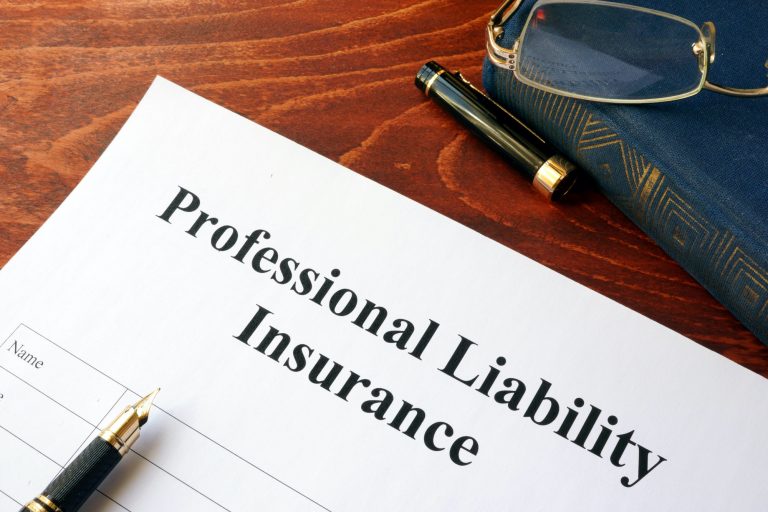Hiring contractors is one of the many tasks assigned to landlords or property managers. These contractors can be electricians, roofers, plumbers, or even carpet cleaners. Each one of these contractors’ professions provides a vital service that contributes to the proper management and maintenance of your property investments.
Because your properties will experience both unforeseen issues and normal wear and tear, you know that you will need to engage the services of these contractors at some point. For this reason, you must know how to hire the best contractors for your rental properties.
Finding a contractor, such as a plumber or an electrician, isn’t really that simple. Of course, there may be many plumbers and electricians in your area, but you just can’t settle for the first contractor that comes to mind when a repair or maintenance issue arises. So instead, you want to hire a contractor who is not only great at their job but also licensed and certified to operate within their state.
Why Hire License and Certified Contractors
In most states, contractors like plumbers and electricians must be licensed to work legally on your properties, or anyone else’s for that matter. As with most state laws, the rules and regulations regarding licensing requirements for contractors can vary widely from state to state.
Regardless of the bureaucracy involved, landlords must ensure that the contractors they hire are legally eligible to work for them. If something unfortunate happens, both the landlord and an unlicensed contractor could get into trouble and face stiff penalties.
Always make sure the contractors you hire are licensed. But, more importantly, make sure their licenses are up-to-date. Depending on their profession, contractors will need to renew their licenses every one to three years.
Certifications are different from licenses. While a license is like a permit to perform a service, being certified is a metric used to determine if a candidate is qualified to perform a role at a particular intellectual or skill level.
A certified contractor takes extra steps to ensure that their customers know they are knowledgeable about their profession and the level of services they offer. For instance, certified plumbers or electricians demonstrate that knowledge by having passed an exam proctored by a third party as an indicator of their skill level.

Contractor Reliability & Safety Concerns
Not only do your contractors have to be licensed and preferably certified, but they must also be reliable. In addition, you are operating within the real estate sector and need a contractor who can accommodate all of your specific property needs.
Let’s take the case of a plumbing issue first to stress this point. A plumbing issue in a single detached home will be different from that of multiple home units. Piping layouts could be more complex, especially if your properties are stacked apartments, condos, or dorm-style buildings. This means that sometimes a plumbing issue may be isolated to one unit or could spread to others due to the inner connections of the pipe systems.
The same thing applies to electrical works. While an unlicensed electrician may insist they have all the skills and qualifications that a licensed electrician has, it will be a significant risk for any landlord to take this route. Again, the lower cost may seem tempting, but considering the nature of electricity and the safety concerns involved, the risk is too great not to go with a licensed professional.
Everyone knows that the results of botched plumbing jobs and faulty electrical work can be catastrophic. Apart from the inconvenience they can cause to your tenants, flooding, electrocution, and electrical fires are also an enormous risk. Beyond just safety concerns, the larger threat to your investments comes in the form of property damage.
Ask for recommendations from fellow landlords, friends, or family who have had similar work done. Additionally, you can search online for local contractors with good reviews and ratings.
Project Cost & Estimates
A familiar issue landlords face when working with unlicensed contractors is the more complex a task, the longer it takes to complete and the more costly it gets. Therefore, an excellent question to ask your contractor before hiring them is what rate they are charging and how long it will take them to finish the job.
Define and clearly outline your project scope from the very beginning. This will help you communicate your expectations effectively and receive accurate cost estimates. For contractors to give you a fair estimate, provide clear guidelines of what needs to be done on your property. Give a detailed list of your expectations and needs so that they can furnish you with an estimated cost and a timeframe for completion.
Professional contractors will always give you an itemized quotation. Refrain from settling for a simple contract that only indicates repairs and services. As a landlord or property manager, you need to know where your money will be spent. Service contracts that don’t itemize the cost of repairs and services could mean the contractor may be looking for ways to skim off the top.
Negotiations could be made to come to a more agreeable price if there is a possibility of a future long-term working relationship. You need to establish these terms beforehand so you aren’t blindsided by a bill you weren’t anticipating. Furthermore, your contractor will find it easier to know what kind of work schedule they can expect while working for you.

Request Bids from Multiple Contractors
Multiple bids from contractors for repair and maintenance in a rental property is a strategic imperative. It serves as a safeguard against oversights and ensures you receive the best value for your investment. With multiple bids, you gain the advantage of comparing costs, services, and approaches, enabling informed decision-making. This practice helps unearth potential red flags, such as abnormally low bids that might compromise quality or excessive pricing that inflates expenses.
By evaluating diverse bids, you not only comprehend the project’s intricacies but also foster a deeper understanding of market rates, allowing for more effective negotiation. Furthermore, this process encourages transparency, revealing hidden costs and omitted details that could later lead to unwelcome surprises.
Ultimately, the pursuit of multiple bids cultivates confidence, assuring that the selected contractor aligns with your vision, budget, and expectations. In the realm of rental property management, this practice stands as a cornerstone, promoting smart choices that ensure the longevity and prosperity of your investment.
Check Out Contractor Portfolio
Reviewing portfolios and past projects when hiring a contractor is a vital step in ensuring the success of your endeavor. A contractor’s body of work acts as a tangible testament to their expertise and capabilities. By examining their portfolio, you gain valuable insights into their aesthetic sensibilities, craftsmanship, and the scope of projects they’ve tackled. This firsthand experience allows you to assess whether their style aligns with your vision and if their skills meet your project’s demands.
Past projects serve as a roadmap of a contractor’s performance history. Scrutinizing completed ventures provides a glimpse into their ability to execute projects on time, within budget, and to specifications. You can gauge the quality of materials used, attention to detail, and the overall finish. Additionally, speaking with references from these projects allows you to gather candid feedback from previous clients, providing a well-rounded view of the contractor’s professionalism, communication, and problem-solving aptitude.

Make Sure Your Contractors are Insured
Legally, every licensed contractor must have some form of insurance. Being insured means the contractor is protected against any risk that may come along while performing construction, repair, or maintenance works. Depending on the complexity of the job, risks become considerable and will typically include injuries, workers’ compensation claims, and damage to property.
On your part as the landlord, you must double-check to find out what is covered in those insurance policies. Ask for a copy of any insurance documentation they may have on file. A general liability insurance is usually enough as this compensates contractors for injuries they may encounter and property damage they may incur while performing the job.
Verify That They Send the Right People
The certified and licensed contractor you might have spoken to when inquiring about their services may not be the person they actually send to perform the job. Instead, apprentices or other non-certified employees may be sent in their place, and it’s your job to make sure you know who they are sending and what their skills are.
To ensure the most qualified people are working on your property, make random spot checks while maintenance and repair works are being completed. You must speak up and insist that only certified contractors take action or make consequential decisions on your investment.
Your Best Bet is to Shop Around
You can just shop around for the best contractors you can find. They will all offer slightly different services at different price ranges, but your goal is to sort them out and find the best fit for you. Also, it would be best to do all of this before you need construction, repair, or maintenance work done.
You are contracting out companies, and they will be your go-to resource for all your property maintenance needs. You can set up a good rapport from the very start so that you can build long and harmonious working relationships with your contractors. This is particularly crucial if you own or manage many rental properties.
On their end, contractors know continuing working relationships with landlords and property managers with multiple properties take a lot of work to come by, so they need to know you are valued clients and should be treated as such—as a priority.

